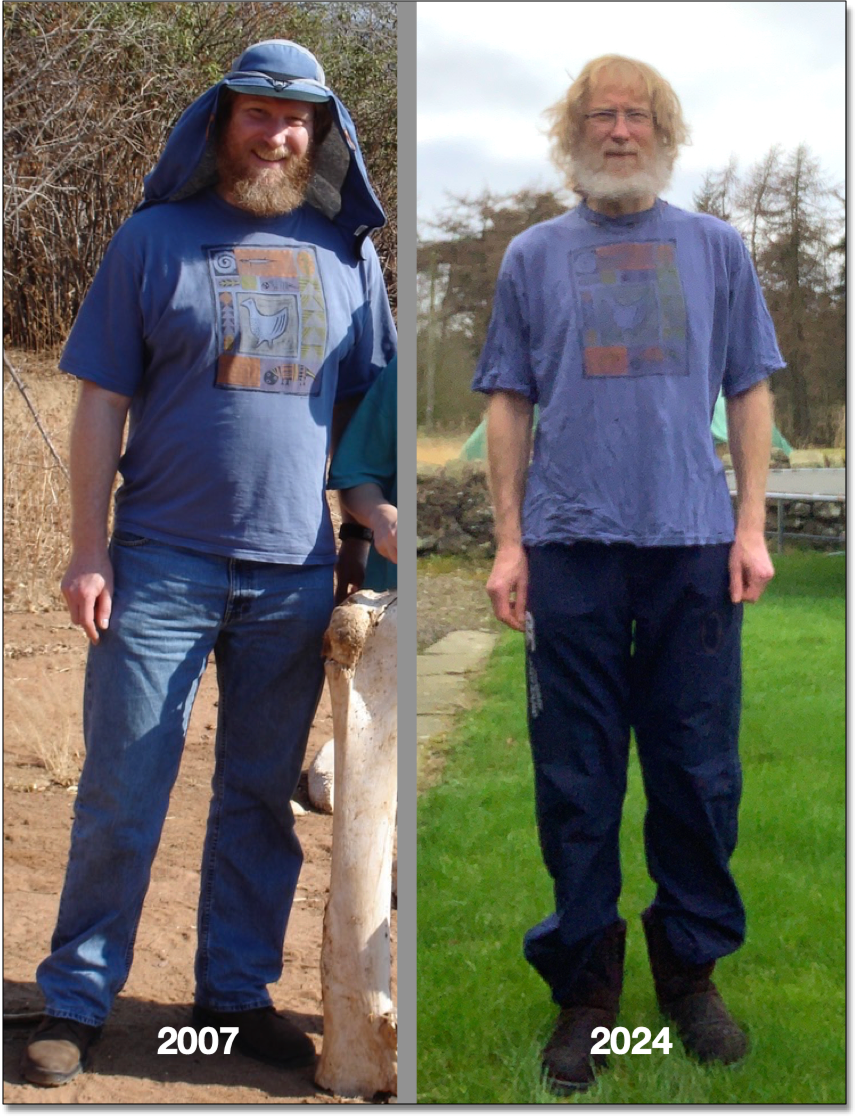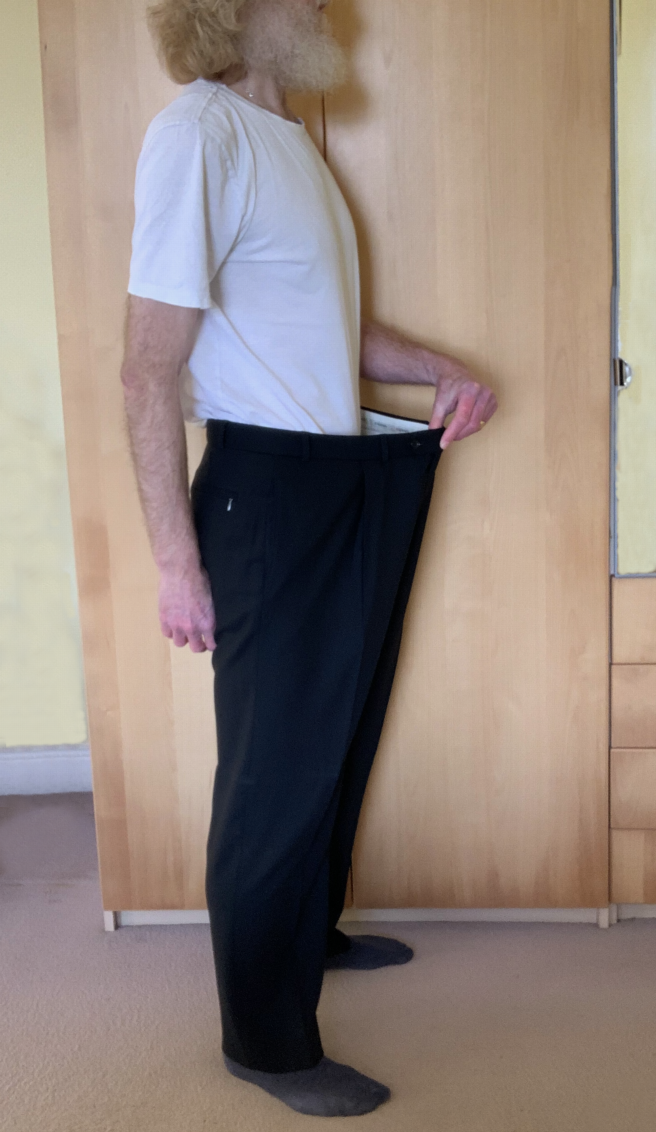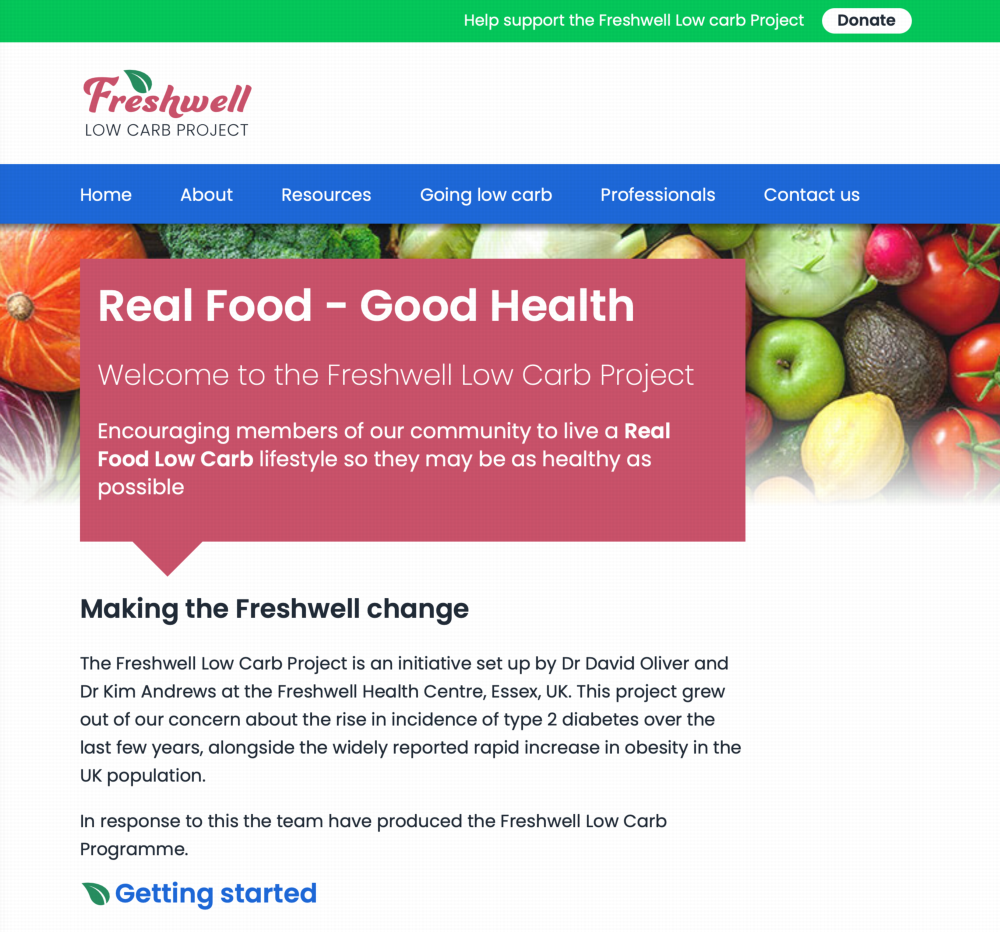Why I Started Coaching Low Carb & Ketogenic Diets
My motivation for starting coaching on low carbohydrate and ketogenic diets was primarily a desire to get back to helping people with their health issues. The aspect of practising as a clinician that I really enjoyed was the contact with people and helping and supporting them in regaining their health, whether it was setting a broken bone or completing a course of antibiotics to clear up an infection. As I moved into medical and then computer-related research, I worked on projects that were still primarily aimed at helping people. Lecturing and teaching were perhaps a further degree of abstraction, but I was still doing my best to help people.
 In my late 40s and early 50s, I found that I was starting to suffer the consequences of neglecting my own health and well-being for the previous twenty years. I had put on weight, my blood pressure was raised, I was on medication for gastro-oesophageal reflux and migraines, had creaking joints and pain when walking up stairs, and suffered badly from sugar crashes and mood swings.
In my late 40s and early 50s, I found that I was starting to suffer the consequences of neglecting my own health and well-being for the previous twenty years. I had put on weight, my blood pressure was raised, I was on medication for gastro-oesophageal reflux and migraines, had creaking joints and pain when walking up stairs, and suffered badly from sugar crashes and mood swings.
A series of events and rebellions from my immune system forced me to pay attention to my diet. At the time, I was vegetarian and consumed huge amounts of carbohydrates, particularly sugary foods. I was eating cereal for breakfast, biscuits and doughnuts at work, sandwiches for lunch, and pasta, pizza, rice, and potatoes as the mainstays of my dinners. Largely by accident, I changed my diet by reducing the carbohydrates I was eating, and the transformation was incredible. I lost 35 kg, stopped having blood sugar crashes, and no longer creaked going up stairs. My energy also increased massively. As a scientist and doctor, I wanted to understand what was happening so I started researching and worked my way through the sparse literature on low carbohydrate and ketogenic diets. There were very few people advocating this approach at that time, primarily a few ultra-distance athletes, and some lone voices from the medical community.
 As I developed my knowledge and insight, more people began to speak out about their personal experiences, and more data started to appear in the medical literature. I remained vegetarian for a number of years until increasing dairy intolerance meant I had to start eating meat again. Since then, I have focused a lot more on food quality and nutrient density, and have continued to fine-tune my diet and work on the issues that poke their heads up from time to time.
As I developed my knowledge and insight, more people began to speak out about their personal experiences, and more data started to appear in the medical literature. I remained vegetarian for a number of years until increasing dairy intolerance meant I had to start eating meat again. Since then, I have focused a lot more on food quality and nutrient density, and have continued to fine-tune my diet and work on the issues that poke their heads up from time to time.
I now have a much better understanding of what my body needs in terms of food, and I am much more aware of what agrees with me and what doesn’t. I still find I need to adjust my diet on a daily basis to ensure I am getting what I need and avoiding what my body doesn’t like. The mainstays of my diet are meat, eggs, and all the vegetables I can eat.
Along the way, I have managed to help a lot of people become more aware of their diet and change what they eat, and I have never seen anyone who successfully reduced their carbohydrate intake fail to benefit from it. Those who have adopted it as an active way of managing their health have all become advocates and promoted it among their family and friends. We desperately need to get the message out that the mounting toll of ill health we see in the UK, the USA, and practically all other countries across the world is due to the poor food choices we are making and being locked into by the food industry and many so-called health authorities and services.
 There is a groundswell of awareness around diet and health being led by some pioneering people. In the UK, GP Dr David Unwin and the Freshwell Low Carb Project led by Dr David Oliver and Dr Kim Andrews, and in the USA by numerous medical and other people such as Dr Georgia Ede, Dr Ken D Berry and Prof Ben Bikman. to name just a few. Dr Jen Unwin and Dr David Unwin have been two of the driving forces behind the development of the Public Health Collaboration (PHC), a charity working to improve public health and save the NHS money through sustainable lifestyle changes. The momentum behind the movement to better health is starting to build.
There is a groundswell of awareness around diet and health being led by some pioneering people. In the UK, GP Dr David Unwin and the Freshwell Low Carb Project led by Dr David Oliver and Dr Kim Andrews, and in the USA by numerous medical and other people such as Dr Georgia Ede, Dr Ken D Berry and Prof Ben Bikman. to name just a few. Dr Jen Unwin and Dr David Unwin have been two of the driving forces behind the development of the Public Health Collaboration (PHC), a charity working to improve public health and save the NHS money through sustainable lifestyle changes. The momentum behind the movement to better health is starting to build.
I make a great effort to keep up with current research and developments in the field of low carbohydrate and ketogenic diets, and the progress being made is exciting. Looking forward, there is increasing evidence accumulating on the benefits of ketogenic therapy in a wide range of mental health and psychiatric conditions, and focused research is continuing to improve our understanding of the role metabolic health plays in different conditions, how individuals vary, and how the various body systems interact at a metabolic level. The undeniable truth emerging is that metabolic underpins the functioning or dysfunctioning of both the human body and mind. The best thing we can do for our current and ongoing health and well-being is to improve the functioning of our metabolisms, and and that begins with the fuel we feed our bodies - the food we eat, and what we drink.
Contact me

 What is a Low Carb Diet
What is a Low Carb Diet